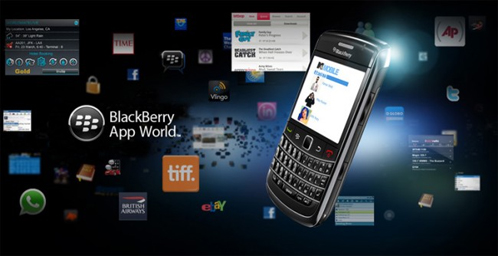分析师称黑莓App World难追苹果和Android应用商店
多数智能手机或多或少都有相同的功能,比如说触摸屏界面、信息选项、网上冲浪、媒体播放、摄影/录像、GPS定位、Wi-Fi等等,因此决定哪款手机最值得投资就要看它所支持的应用软件情况如何。
可下载的应用程序可以扩展一款智能手机的功能、个性化和使用寿命,你可以在自己的智能手机上安装自己最需要的软件,例如游戏、办公软件、家庭作业助手、音乐制作程序、电子书阅读器、旅游指南等。说到这些软件,就不得不提到手机应用商店。苹果iPhone无疑是最大赢家,它的App Store可下载安装的应用已超过25万款,谷歌Android应用商店的产品数量最近也迈入了10万大关的门槛。
那么黑莓的App World情况又如何呢?区区1万款应用而已。
颇为讽刺的是,RIM在美国市场仍独享最大的蛋糕,其黑莓智能手机目前的市场份额为39.3%,iPhone是23.8%,Android为17%。
但comScore最近的调查数据也显示,RIM正在失势,黑莓市场份额同比上季度下降了1.8个百分点,与此同时,谷歌Android却增长了5个百分点。
黑莓App World以更少的产品,收取更高的价格,可能是许多用户抛弃黑莓手机而转向其他竞争产品的唯一原因。
加拿大安大略省的独立技术行业分析师卡迈·利维(Carmi Levy)表示,“苹果和谷歌正通过手机应用分食RIM的市场份额,黑莓App World除了应用数量明显不足之外,它的用户体验也远不及其他竞争对手,用户从中很难找到自己所需的应用。”
RIM遭到冷落的其他原因还可能是:虽然RIM已经坐上了智能手机平台的头把交椅,但现在已有更多对手也加入激战,比如说Android和Windows,它们选择与多个手机原始制造商合作推出多款智能手机,而不是仅局限于同一家软件和硬件制造商(例如RIM和苹果),非黑莓的智能手机硬件只要能满足手机操作软件公司的安全性要求,其业务就有可能不断增长。
IDC市场调研分析师及中小企业移动专家蒂姆·多赫蒂(Tim Doherty)表示,“App World刚开业时,最便宜的应用也要2.99美元,而苹果App Store却只要99美分,更何况App Store还有更多可用于iOS平台的内容。不过App World的产品价格后来还是下降了,意在吸引更多开发商,黑莓PlayBook平板电脑的发布尤其能说明这一点。”
利维称开发商往往需要花费更长时间为黑莓应用编码,所以他们都对这一平台退避三舍,“黑莓在应用开发这方面一直很吃亏,该公司也承认自己的开发工具使用起来并不像其他平台那么利索和顺畅……新型的PlayBook平板电脑操作系统,是基于QNX系统技术开发而得,将解决这一应用开发问题,让开发商更容易创造新应用产品,然后通过已改良和更新的在线应用商店推向市场。”
利维还预测,“虽然RIM不会承认,但这确已预示着黑莓操作系统开始走向终结。如果RIM还想在手机应用领域发力,那就应该让所有黑莓产品都采用同一种操作系统,就像苹果的产品都运行在iOS平台上,黑莓这种两个操作系统并行的策略根本行不通。”
多赫蒂还表示,典型的黑莓用户可能并不会像其他智能手机用户那样,把手机应用视为头等大事,“RIM的资本在于它的企业背景,应用体验则主要来自用户本身……但这种情况正在发生变化。”
市场调研公司Forrester Research的首席分析师米歇尔·佩利欧(Michele Pelino)与多赫蒂的看法一致,“应用商店最初比较受普通用户欢迎,可事实上商务用户也开始通过应用商店寻找可提高工作效率的工具……RIM在应用数量上处于下风的另一个原因是,他们不想对应用经销渠道进行分流,却冒险和同样销售应用的服务供应商进行合作,而iPhone用户却只能通过App Store下载应用。”
利维认为黑莓App World需要“彻底重新考虑”如何让用户更容易找到相关应用,“在App World中,即使是最基本的应用搜索也像大海捞针一样困难,用户往往是空手而归,而在苹果和谷歌的应用商店,用户却很容易找到最新和原有的应用产品。”(本文为游戏邦/gamerboom.com编译)
BlackBerry’s App World: Can it ever catch up to Apple, Android?
What RIM needs to do to improve its BlackBerry App World online store and compete with Apple and Android.
Now that most smartphones offer more or less the same features – touchscreen interface, messaging options, web surfing, media playback, camera/camcorder, GPS navigation, Wi-Fi, and so on –deciding which device to invest in might boil down to what software is available for it.
So what separates these digital Swiss Army Knives from one another?
Downloadable applications , or “apps,” can extend the functionality, personality and longevity of a smartphone, as you can fill up your smartphone with software that matters most to you — be it games, business tools, homework helpers, music-making programs, e-book readers, travel aids, and so on.
When it comes to application stores, Apple’s iPhone is currently king, with more than 250,000 downloads available at the App Store (part of iTunes), followed by Google’s Android Market which is closing in on the 100,000 app milestone.
BlackBerry App World? 10,000.
Ironically, Research in Motion (RIM) still owns the most market share in the U.S., with its line of BlackBerry smartphones – currently at 39.3 percent, compared to 23.8 percent for iPhone and 17 percent for Android.
But the latest numbers show RIM is losing ground to rivals. According to comScore, BlackBerry market share fell 1.8 percentage points from the previous quarter, while Google’s Android gained five percentage points over the same period.
An app store with considerably fewer offerings than its competition, and generally more expensive, might be only one reason why some might be abandoning their BlackBerry for more appealing alternatives.
“Apple and Google have been eating RIM’s lunch in the mobile app game,” confirms Carmi Levy, an independent technology analyst based in London, Ontario. “Beyond its obvious shortfall in apps, BlackBerry App World is nowhere near as intuitive to use as the competition, so it’s harder for users to find what they’re looking for.”
Other reasons why RIM might be losing market share: while the company might’ve been the first with a breakthrough smartphone platform, there are many more players today; competing platforms, such as Android and Windows, work with multiple device makers to create smartphones instead of the same company delivering software and hardware (as with RIM and Apple); and increasingly, businesses are allowing for non-BlackBerry smartphones, as long as they meet the company’s security requirements.
So, what’s the issue?
“When App World launched, the lowest price point was $2.99, compared to free or 99 cents for Apple’s App Store, not to mention there is a lot more content for iOS devices,” says Tim Doherty,research analyst and mobility expert for small and midsized businesses at IDC. “Their prices have dropped since, though, and they’re trying to court more developers – especially with the announcement of the BlackBerry PlayBook tablet.”
Levy says it also takes developers longer to code for BlackBerry, so many of them simply stay away. “BlackBerrys have long suffered on the app front because the company admits its development tools aren’t as slick and streamlined as those available for other platforms.”
“The new PlayBook Tablet OS, based on technology created by recently acquired QNX Systems, will address this by making it easier for developers to first create new titles, then bring them to market in a revamped and refreshed online application store,” adds Levy.
“Although RIM will deny it, this heralds the beginning of the end of the BlackBerry operating system that powers the company’s smartphones,” predicts Levy. “If RIM is going to compete in the app space, it needs one consistent operating system across all its devices — much like Apple has done with its iOS — and a two-OS strategy just won’t cut it.”
Is it the right crowd?
Doherty also suggests the typical BlackBerry user might not place apps as high a priority as other smartphone owners. “RIM’s heritage is in enterprise background, and the app phenomenon has come from consumer side…but this is changing.”
Michele Pelino, a principal analyst at Forrester Research, agrees with Doherty. “Originally, app stores were embraced by consumers, but the reality is business users are going to app stores, too, in order to find tools for productivity and efficiency.”
“Another reason why RIM is behind [in its app offerings] is because they’re in the middle of a balancing act — they don’t want to alienate distribution channels and risk their relationship with service providers who also sell apps — whereas iPhone users can only get apps at the App Store,” adds Pelino.
Even with the recent BlackBerry App World software update that tweaked the user-interface, Levy believes the store needs a “complete rethink” to make it easier for users to find relevant software : “As it is, even the most basic search amounts to a needle in a haystack type of affair, and it often ends with the user leaving empty-handed — contrast this with Apple’s and Google’s online stores, which make it easy to find new and existing titles alike.”(source:digitaltrends)










































 闽公网安备35020302001549号
闽公网安备35020302001549号